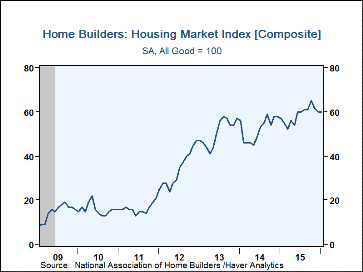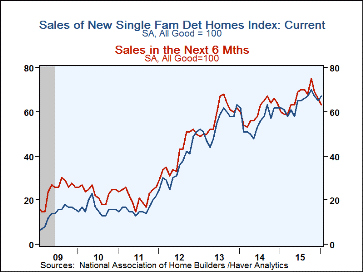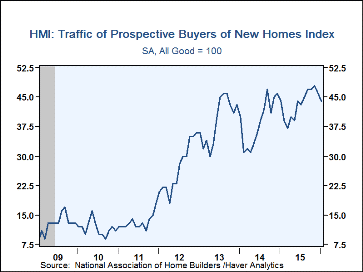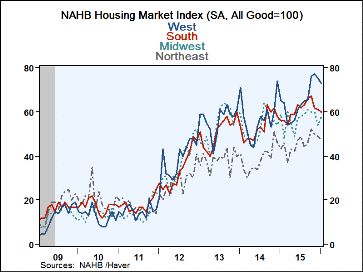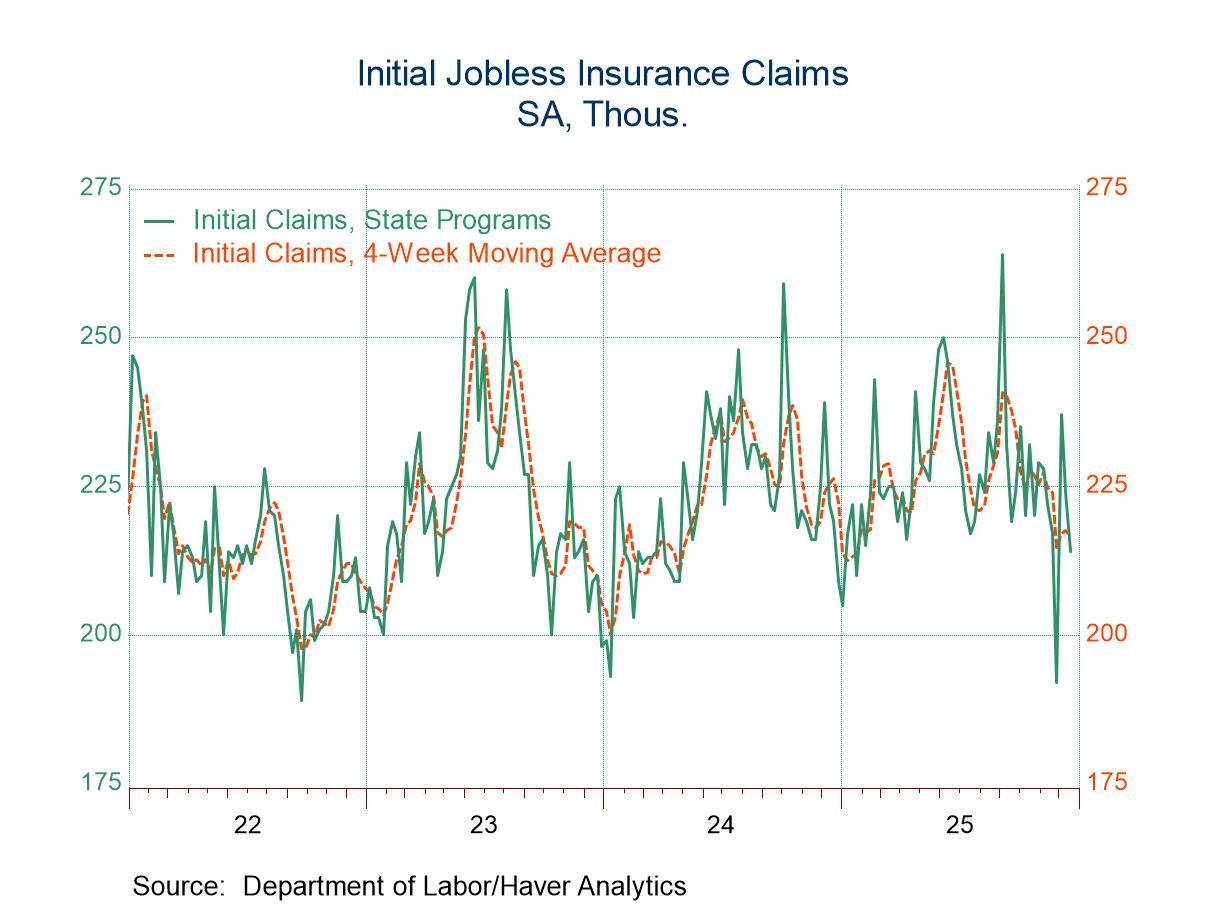 Global| Jan 19 2016
Global| Jan 19 2016U.S. Home Builders Index Treads Water
by:Tom Moeller
|in:Economy in Brief
Summary
The Composite Housing Market Index from the National Association of Home Builders-Wells Fargo held steady during January at 60 after falling 7.7% during the prior two months. It matched the level reached last June and has moved in a [...]
The Composite Housing Market Index from the National Association of Home Builders-Wells Fargo held steady during January at 60 after falling 7.7% during the prior two months. It matched the level reached last June and has moved in a narrow range since. The figure fell short of expectations for 61 in the Informa Global Markets Survey. The NAHB figures are seasonally adjusted. During the last ten years, there has been an 80% correlation between the y/y change in the home builders index and the y/y change in single-family housing starts.
The index of single-family home sales increased 3.1% (8.1% y/y) to 67 and recovered December's decline. Offsetting this rise, however, was a decline in the index of expected sales during the next six months. It fell 4.5% to 63, but still was 5.0% higher than one year ago.
Home builders reported that their traffic index fell 4.3% to 44. That repeated the prior month's decline and left it at the lowest level in six months.
The housing market index decline reflected an easing throughout most of the country. In the Northeast the index fell 4.1% (+9.3% y/y), down for the third straight month. In the West, the index fell 2.7% (+12.3% y/y) to the lowest level since September. In the South, the index was off 1.6% (+7.1% y/y), repeating its December performance; but in the Midwest the index rose 7.4% (-1.7% y/y), having moved sideways since mid-2014.
The NAHB has compiled the Housing Market Index since 1985. It reflects survey questions asking builders to rate market conditions as "good," "fair," "poor" or "very high" to "very low." The figure is thus a diffusion index with numerical results over 50 indicating a predominance of "good" readings. The weights assigned to the individual index components are .5920 for single-family detached sales, present time, .1358 for single-family detached sales, next six months and .2722 for traffic of prospective buyers. The results are included in Haver's SURVEYS database. The expectations figure is available in Haver's MMSAMER database.
| National Association of Home Builders | Jan | Dec | Nov | Jan'15 | 2015 | 2014 | 2013 |
|---|---|---|---|---|---|---|---|
| Composite Housing Market Index, SA (All Good=100) | 60 | 60 | 62 | 57 | 59 | 52 | 51 |
| Single-Family Sales: Present | 67 | 65 | 67 | 62 | 64 | 56 | 55 |
| Single-Family Sales: Next Six Months | 63 | 66 | 69 | 60 | 66 | 61 | 58 |
| Traffic of Prospective Buyers | 44 | 46 | 48 | 44 | 43 | 39 | 39 |
Tom Moeller
AuthorMore in Author Profile »Prior to joining Haver Analytics in 2000, Mr. Moeller worked as the Economist at Chancellor Capital Management from 1985 to 1999. There, he developed comprehensive economic forecasts and interpreted economic data for equity and fixed income portfolio managers. Also at Chancellor, Mr. Moeller worked as an equity analyst and was responsible for researching and rating companies in the economically sensitive automobile and housing industries for investment in Chancellor’s equity portfolio. Prior to joining Chancellor, Mr. Moeller was an Economist at Citibank from 1979 to 1984. He also analyzed pricing behavior in the metals industry for the Council on Wage and Price Stability in Washington, D.C. In 1999, Mr. Moeller received the award for most accurate forecast from the Forecasters' Club of New York. From 1990 to 1992 he was President of the New York Association for Business Economists. Mr. Moeller earned an M.B.A. in Finance from Fordham University, where he graduated in 1987. He holds a Bachelor of Arts in Economics from George Washington University.


